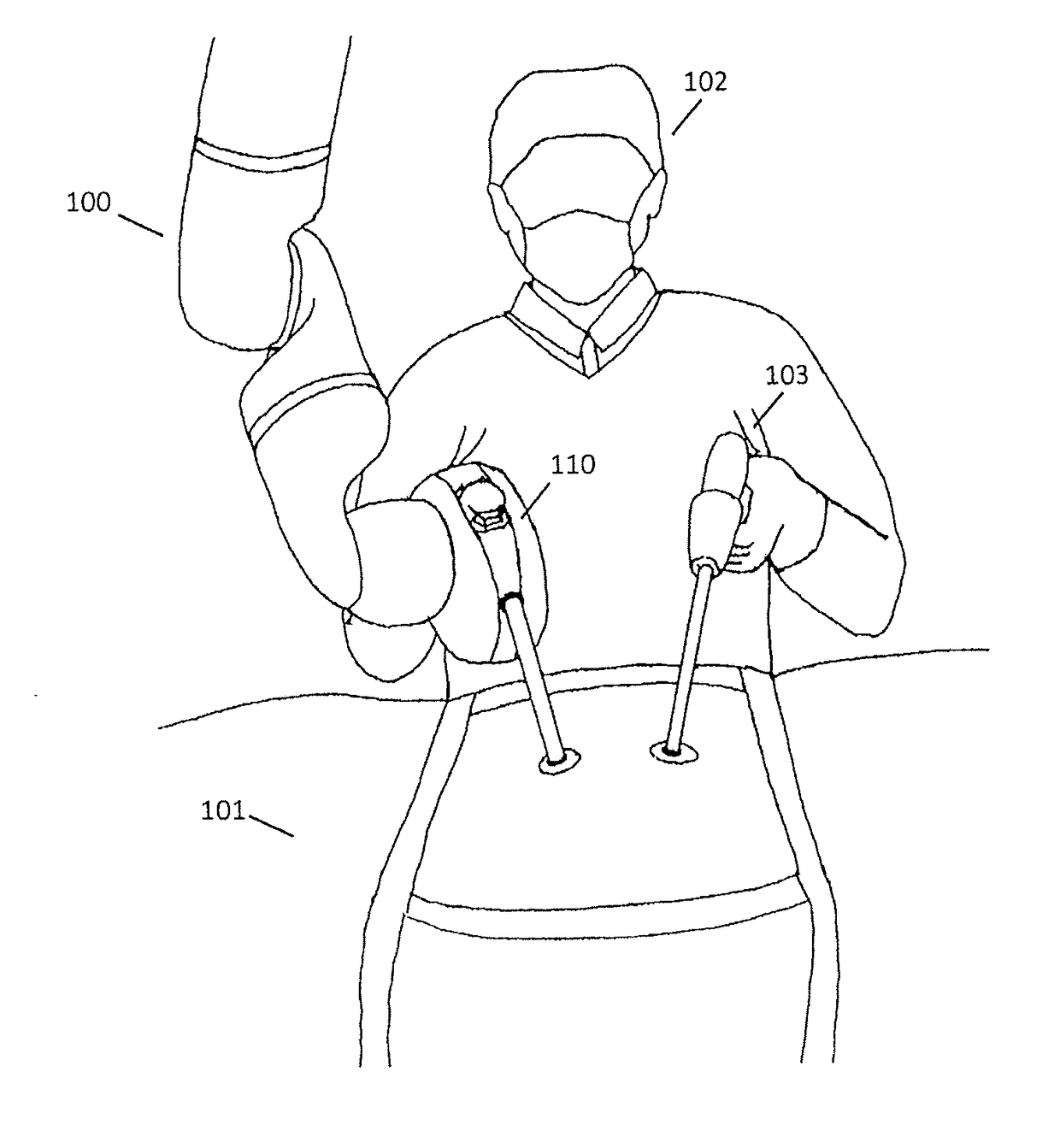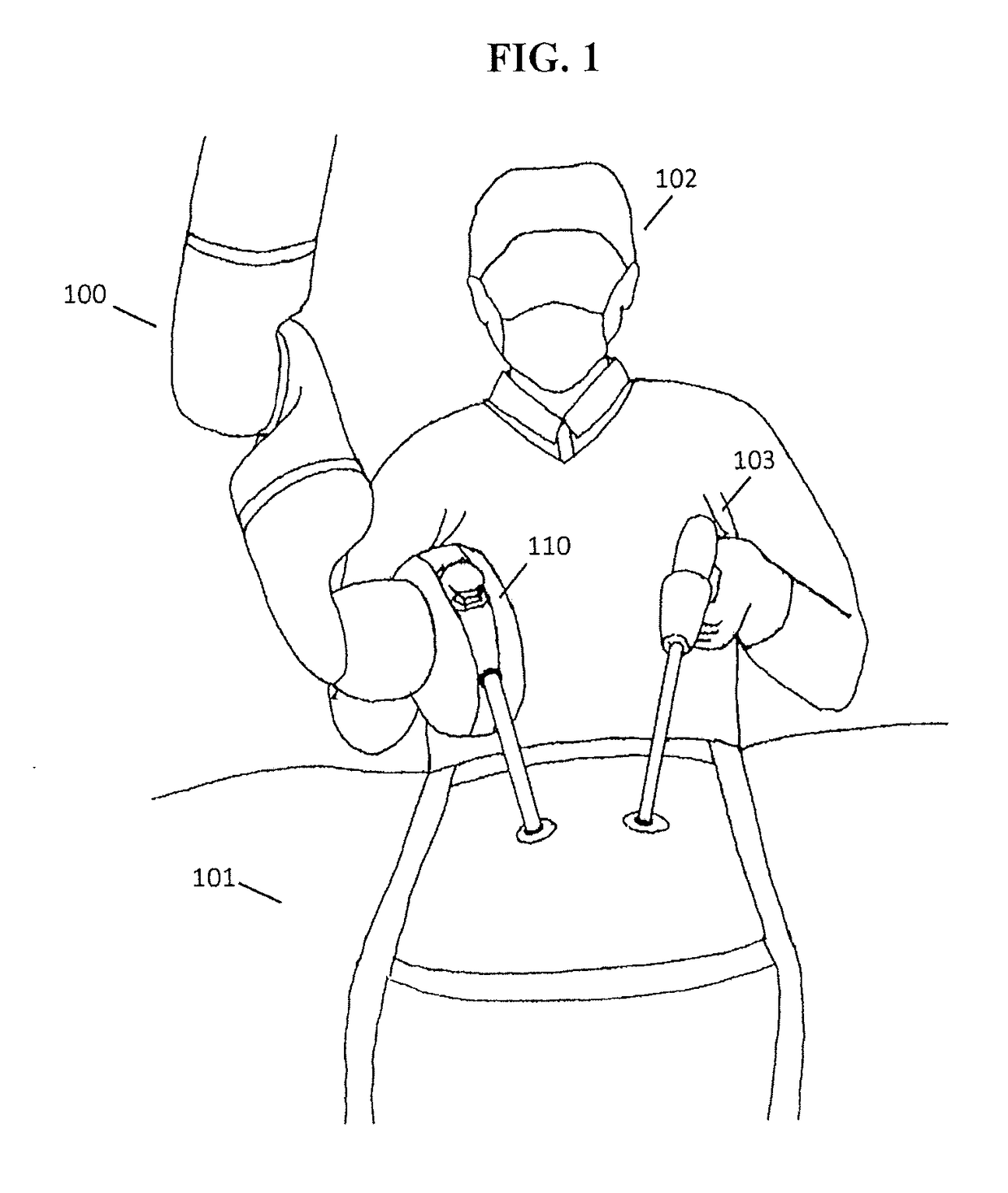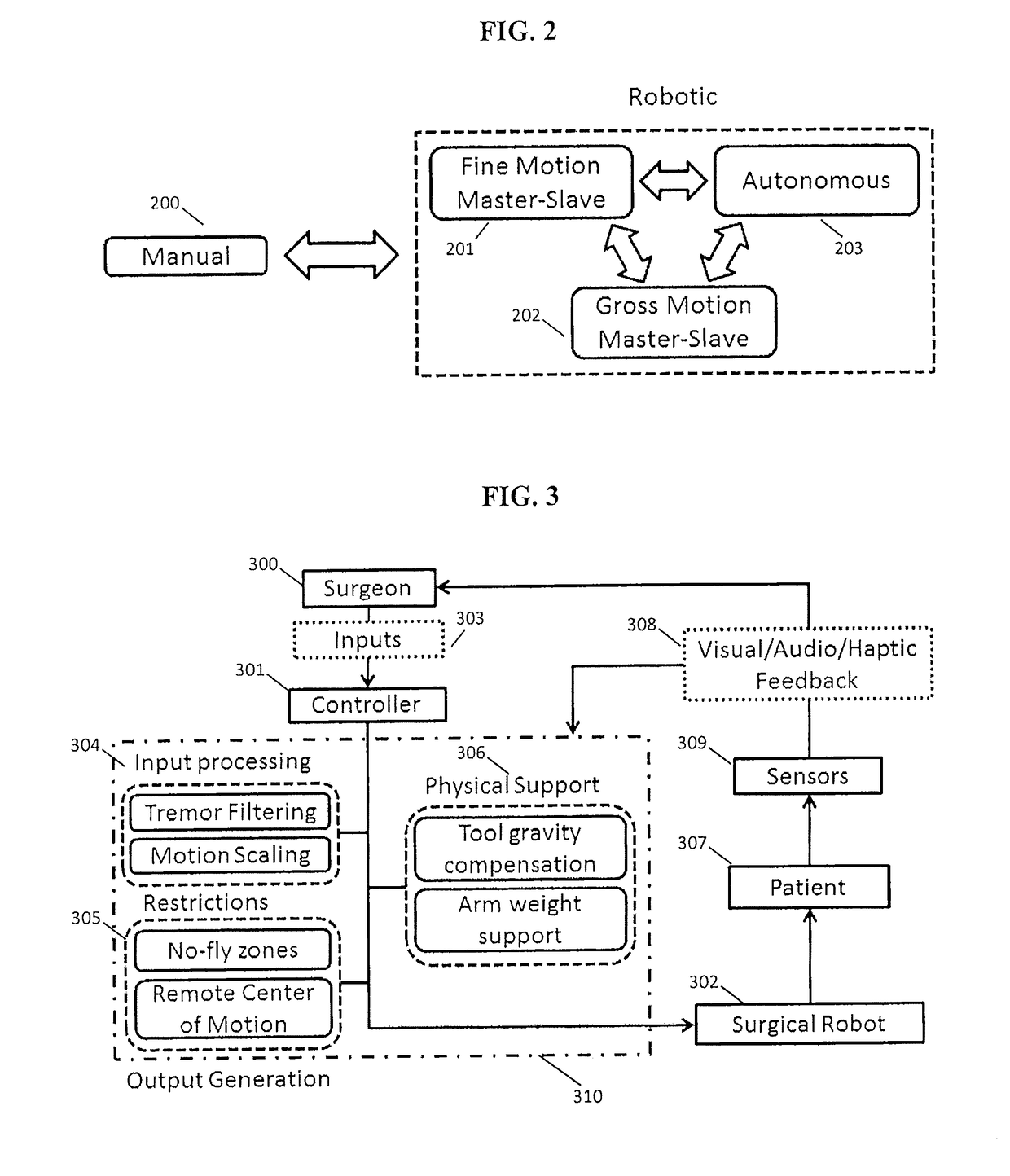Hybrid control surgical robotic system
a robotic system and robotic technology, applied in the field of robotic surgery, can solve the problems of shortening the learning curve of the procedure, not suitable for general surgery, and not being able to adapt to the current form of technology, so as to improve the control and awareness of the operating environment, reduce the risk of complications, and improve the effect of surgical efficiency
- Summary
- Abstract
- Description
- Claims
- Application Information
AI Technical Summary
Benefits of technology
Problems solved by technology
Method used
Image
Examples
Embodiment Construction
[0048]Objects, advantages, and features of the exemplary hybrid control surgical robotic system described herein with be apparent to one skilled in the art from a consideration of this specification, including the attached drawings.
[0049]FIG. 1 represents one exemplary surgical area setup. In one embodiment, a robot (100) may be mounted near the operating bed (101), so that the surgeon (102) may switch between manual operation and robotic operation without leaving the bedside. The surgeon may use the robot (100) with one hand via a universal tool adapter (110), and a manual tool (103) in the other, or he may use two or more robots. In one embodiment, the manual tool (103) may be a laparoscopic tool.
[0050]In one embodiment, FIG. 2 shows exemplary modes of operation available when utilizing this system: manual (200), fine motion master-slave (201), gross motion master-slave (202), and autonomous (203). The surgeon may opt to utilize any one of these modes and may switch between them a...
PUM
 Login to View More
Login to View More Abstract
Description
Claims
Application Information
 Login to View More
Login to View More - R&D
- Intellectual Property
- Life Sciences
- Materials
- Tech Scout
- Unparalleled Data Quality
- Higher Quality Content
- 60% Fewer Hallucinations
Browse by: Latest US Patents, China's latest patents, Technical Efficacy Thesaurus, Application Domain, Technology Topic, Popular Technical Reports.
© 2025 PatSnap. All rights reserved.Legal|Privacy policy|Modern Slavery Act Transparency Statement|Sitemap|About US| Contact US: help@patsnap.com



